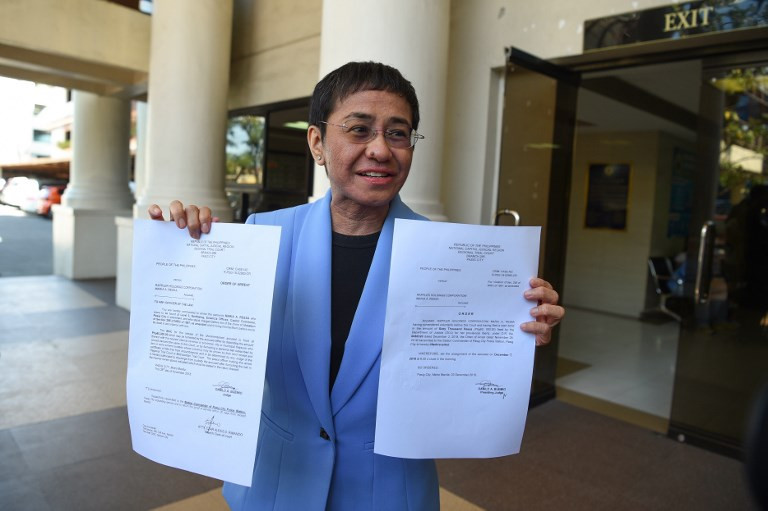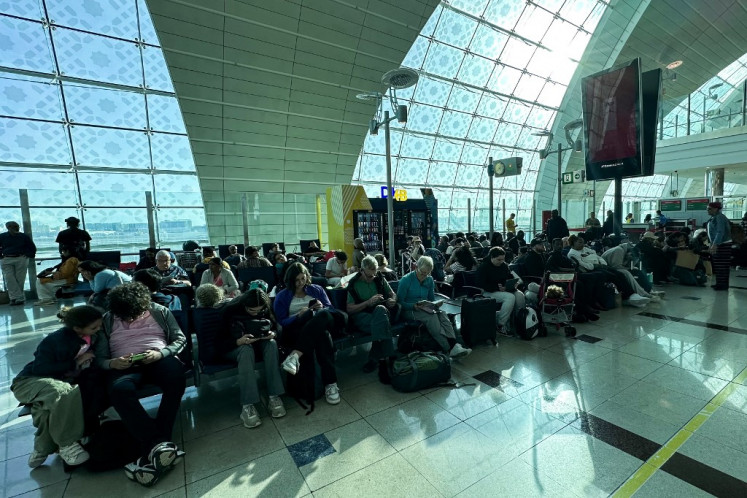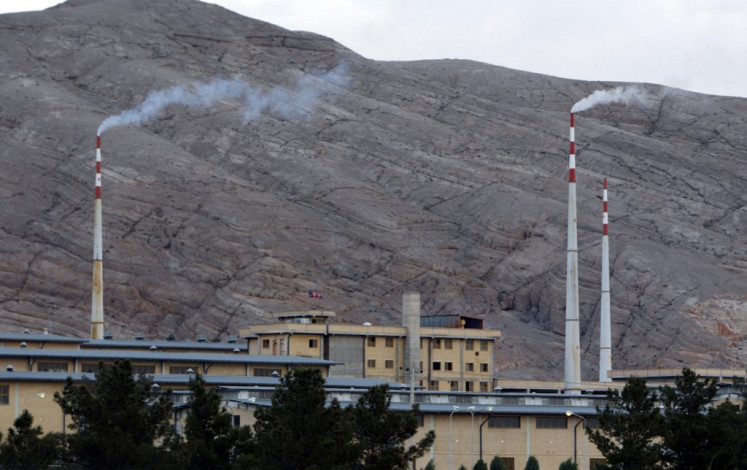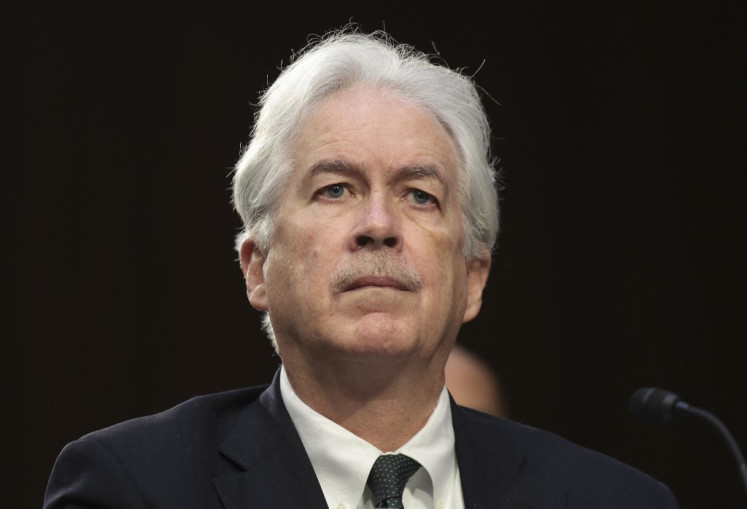Democracy, press freedom on rollback in Southeast Asia: Maria Ressa
Ressa, 58, likened online disinformation and fact-twisting to a "virus of lies unleashed in our information ecosystem," pushing back decades' worth of democratic gains.
Change Size
 Maria Ressa, CEO and executive editor of online portal Rappler shows the warrant of arrest order after posting bail at a court in Manila on December 3, 2018. The journalist who leads a news site that has battled Philippine President Rodrigo Duterte paid a cash bail on December 3 on a tax fraud charge she says is an effort to intimidate the publication.
Ted ALJIBE / AFP (AFP/Ted Aljibe)
Maria Ressa, CEO and executive editor of online portal Rappler shows the warrant of arrest order after posting bail at a court in Manila on December 3, 2018. The journalist who leads a news site that has battled Philippine President Rodrigo Duterte paid a cash bail on December 3 on a tax fraud charge she says is an effort to intimidate the publication.
Ted ALJIBE / AFP (AFP/Ted Aljibe)
N
obel Peace Prize winner and Filipino journalist Maria Ressa said Thursday that democracies and press freedom in Southeast Asian nations are on a "rollback," as she highlighted the crucial work journalists must do to hold the line.
Ressa, 58, likened online disinformation and fact-twisting to a "virus of lies unleashed in our information ecosystem," pushing back decades' worth of democratic gains.
"I think that the Nobel Committee chose journalists for this moment in time is a signal that something is happening in our information ecosystem," Ressa told Kyodo News in an interview after winning the prize last week for her efforts to safeguard freedom of expression.
"This is a recognition of that, of how the information ecosystem has changed, how journalists have lost gatekeeping powers to technology platforms which have abdicated responsibility to protect the public sphere," she said.
Ressa, who shares this year's prize with Russian journalist Dmitry Muratov, said the use of "cheap armies" online to control certain narratives is happening in countries like China, Iran, Saudi Arabia and Russia.
In the immediate region, hate speech is seen to have triggered genocide of Rohingya Muslims in Myanmar or for newsrooms in Indonesia to feel that they are "under siege." There are also threats to democracy in Cambodia and Thailand and these create "ripples through society," she said.
Ressa, who spent two decades as CNN correspondent in Southeast Asia before co-founding Manila-based news site Rappler critical of President Rodrigo Duterte, said the Philippines used to enjoy a vibrant democracy until recent years.
"I am shocked that after 35 years as a journalist, I get 10 arrest warrants in less than two years for doing my job," she said.
In 2020, the Philippine Congress denied leading TV network ABS-CBN its franchise, leading to its shutdown and thousands of its employees losing their jobs. Local press is also constantly being insulted by state officials or by Duterte's supporters.
Ressa herself has been denied foreign travel four times since her cyber libel conviction last year, diminishing her chances to personally accept the Nobel award in Oslo.
But "I'm fighting this in court. I'm not going to voluntarily give up my rights. I will fight for my rights and I hope to be there in Oslo on Dec. 10," she said.









